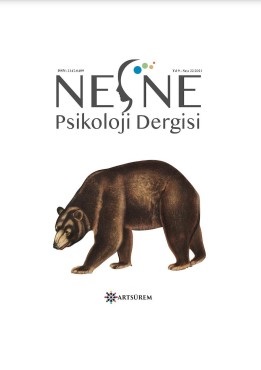Psikoloji Araştırmalarında Kelime Edinim Yaşı: Kuramlar, Yöntemler ve Uygulama Alanları
Age of Acquisition in Psychological Research: Theories, Methods and Application Areas
Author(s): Kübra Arıkan, Bahar Tarakçı, Ümit AkırmakSubject(s): Language acquisition, Cognitive Psychology, Neuropsychology, Behaviorism
Published by: Sanat ve Dil Araştırmaları Enstitüsü
Keywords: Age of acquisition; norm studies; dyslexia; neuroscience; second language acquisition;
Summary/Abstract: Age of acquisition refers to the age at which a specific word is learned for the first time. Research shows that age of acquisition is a significant variable in lexical processing tasks. The age of acquisition effect emerges from how information is stored and accessed in the brain and is used to seek answers to theoretical and practical research questions about the mind. For example, studies in the clinical psychology field show that the age of acquisition effect differs in participants with brain damage or neurological disorders (e.g., Alzheimer's disease, aphasia, semantic dementia, and dyslexia) compared to participants without these disorders. Research in neuroscience shows that early and late acquired words are associated with different brain activations. Although it has a long and rich history in international literature, there are very few empirical studies on the age of acquisition effect in Turkish literature. In this review, basic findings and theories are discussed, and the subjective and objective procedures of collecting age of acquisition norms are presented comparatively. After examining the theoretical and methodological issues in the field, the application areas of the age of acquisition, including clinical psychology, neuroscience, and second language acquisition, are discussed, and suggestions for future studies are presented.
Journal: Nesne-Psikoloji Dergisi
- Issue Year: 9/2021
- Issue No: 22
- Page Range: 989-1012
- Page Count: 24
- Language: Turkish

